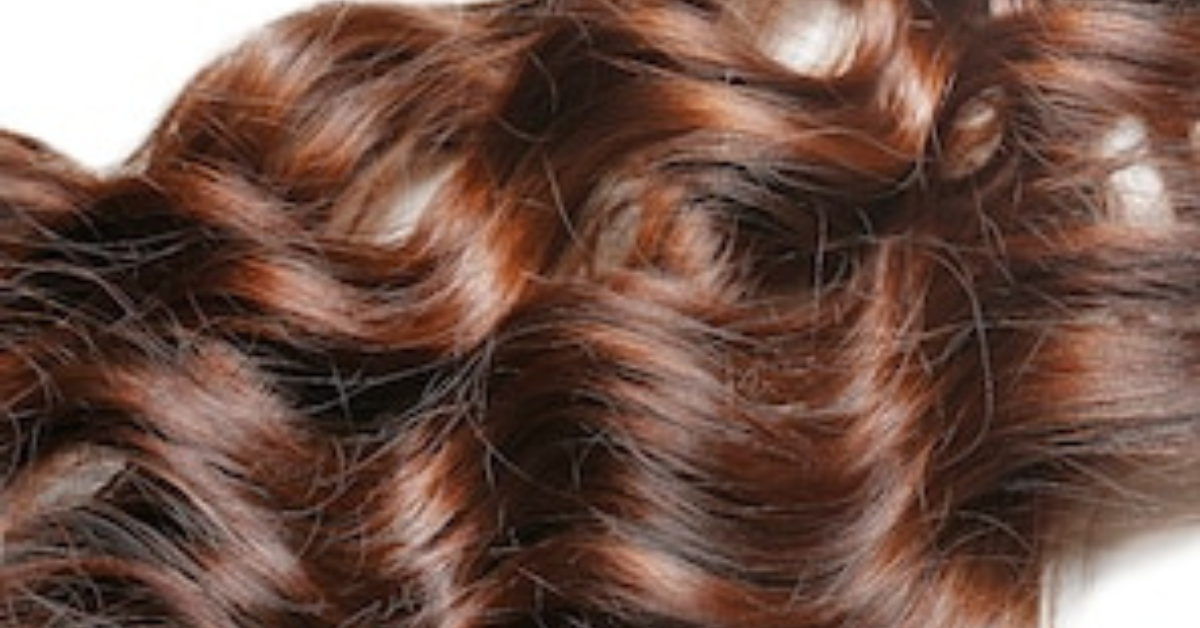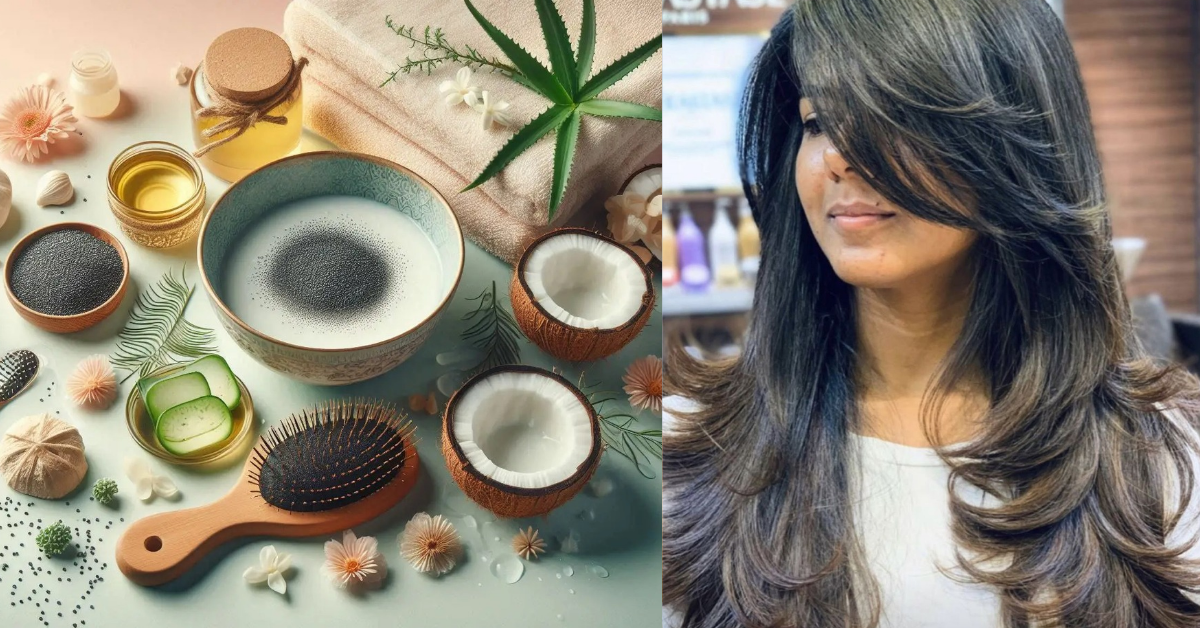How to Use Poppy Seeds for Hair Growth: Easy Home Remedies
If you’re looking for gentle, natural, and deeply nourishing ingredients to boost your hair growth journey, poppy seeds might be the underrated secret you’ve been missing.

These tiny seeds, also called khus khus or posto, are packed with hair-friendly nutrients that soothe the scalp, strengthen hair roots, and promote healthy growth.
While poppy seeds are well known for their culinary uses, their impact on hair health is gaining popularity thanks to their natural fatty acids, antioxidants, and calming properties.
Explore the benefits of poppy seeds for hair, why they work, and easy DIY poppy seed hair treatments you can try at home for growth, hydration, and scalp nourishment.
What Makes Poppy Seeds Good for Hair?
Poppy seeds may be tiny, but their nutrient profile is impressive. They contain:
These nutrients collectively work to nourish hair follicles, moisturize strands, calm inflammation, and support overall scalp health.
Benefits of Using Poppy Seeds for Hair
1. Promotes Hair Growth
Poppy seeds contain essential fatty acids that deeply nourish hair follicles. They help increase blood circulation to the scalp, encouraging healthier and faster hair growth.
Their rich mineral content—especially zinc and iron—supports follicle regeneration and strengthens the hair shaft over time.
2. Deeply Moisturizes Dry and Damaged Hair
If your hair feels rough, dry, or brittle, poppy seeds offer excellent moisture-locking properties.
Their natural oils help soften strands, reduce frizz, and improve elasticity. When blended into a paste, poppy seeds create a creamy mask that hydrates hair from root to tip.
3. Calms Scalp Irritation
Poppy seeds have mild anti-inflammatory and cooling properties. They soothe scalp redness, itchiness, and irritation caused by dehydration, harsh chemicals, or heat styling. This makes them ideal for sensitive scalps.
4. Reduces Hair Fall
Thanks to their strengthening minerals, applying poppy seed treatments helps reduce hair fall caused by weak roots or nutritional deficiencies.
Magnesium and zinc support stronger hair follicles and reduce breakage.
5. Helps Fight Dandruff
Their soothing and hydrating nature makes poppy seeds an effective home remedy for dandruff. They help balance scalp moisture levels and reduce flakiness without stripping natural oils.
6. Adds Shine and Smoothness
Regular use of poppy seed masks improves hair texture significantly. The natural oils smoothen cuticles and enhance shine, making hair look healthier and more manageable.
How to Prepare Poppy Seeds for Hair Treatments
Poppy seeds can be used directly or vcafter soaking and blending. For most DIY hair masks, follow these simple preparation steps:
1. Soak 2–3 tablespoons of poppy seeds in warm water for 2–3 hours (or overnight for best results).
2. Drain the water.
3. Blend the seeds into a smooth, creamy paste.
4. Use them directly or mix with other hair-loving ingredients like coconut oil, aloe vera, or yogurt.
Now let’s look at some easy and effective DIY poppy seed hair treatments you can try at home.
DIY Poppy Seed Hair Treatments for Growth & Scalp Nourishment
Below are simple, powerful, and natural maskbs you can prepare using kitchen ingredients.
1. Poppy Seed & Coconut Milk Mask for Hair Growth
This mask is ideal if you’re dealing with thinning hair or slow hair growth. Poppy seeds nourish the follicles while coconut milk boosts protein and fatty acids, giving your hair a healthy growth boost.
Ingredients
3 tablespoons poppy seeds (soaked and bhlended)
½ cup coconut milk
1 tablespoon coconut oil (optional)
How to Make
1. Blend soaked poppy seeds with coconut milk until creamy.
2. Add coconut oil for extra nourishment.
3. Mix well.
How to Use
- Apply the mask to your scalp and hair.
- Massage for 5 minutes.
- Leave it on for 30–40 minutes.
- Rinse with a mild shampoo.
Benefits
- Strengthens roots
- Promotes faster growth
- Adds shine and softness
2. Poppy Seed & Yogurt Mask for Dandruff and Itchy Scalp
Yogurt’s probiotics help restore scalp balance, while poppy seeds soothe and hydrate, making this an effective anti-dandruff treatment.
Ingredients
2–3 tablespoons poppy seed paste
½ cup fresh yogurt
1 tablespoon lemon juice (optional)
How to Make
Mix all ingredients into a smooth paste.
How to Use
- Apply evenly to your scalp.
- Leave for 20–30 minutes.
- Rinse thoroughly with lukewarm water.
Benefits
- Reduces dandruff
- Soothes itchiness
- Hydrates scalp
3. Poppy Seed & Aloe Vera Mask for Scalp Nourishment
This cooling mask is perfect for sensitive or irritated scalps. Aloe vera and poppy seeds work together to calm inflammation and hydrate deeply.
Ingredients
3 tablespoons poppy seed paste
4 tablespoons fresh aloe vera gel
1 teaspoon olive oil (optional)
How to Make
Mix the ingredients until smooth.
How to Use
- Apply to scalp and gently massage.
- Leave for 25–30 minutes.
- Wash thoroughly with mild shampoo.
Benefits
- Reduces inflammation
- Moisturizes scalp
- Strengthens hair roots
4. Poppy Seed & Fenugreek Hair Mask for Hair Fall Control
Fenugreek (methi) is known for strengthening roots and reducing hair fall. Combined with poppy seeds, this mask becomes a powerful anti-hair fall remedy.
Ingredients
2 tablespoons poppy seed paste
2 tablespoons fenugreek seeds (soaked and blended)
2 tablespoons yogurt or milk
How to Make
Blend the ingredients until creamy.
How to Use
- Apply from roots to ends.
- Leave for 30–40 minutes.
- Rinse using warm water followed by a mild shampoo.
Benefits
- Reduces hair fall
- Strengthens follicles
- Supports thicker growth
5. Poppy Seed & Honey Deep Conditioning Mask
Honey is a natural humectant—it attracts and retains moisture. Combined with poppy seeds, this mask is perfect for dry, frizzy, or damaged hair.
Ingredients
3 tablespoons poppy seed paste
1 tablespoon raw honey
2 tablespoons milk or rose water
How to Make
Mix everything into a smooth, spreadable paste.
How to Use
- Apply to hair length and ends.
- Leave on for 20–25 minutes.
- Rinse with lukewarm water.
Benefits
- Intense hydration
- Smoother texture
- Reduced frizz
6. Poppy Seed & Onion Juice Mask for Powerful Hair Growth
Onion juice is rich in sulfur, which helps stimulate hair follicles. When mixed with poppy seeds, it becomes a potent growth remedy.
Ingredients
3 tablespoons poppy seed paste
2 tablespoons onion juice
1 tablespoon almond oil
How to Make
Combine all ingredients and mix thoroughly.
How to Use
- Apply to scalp only.
- Leave for 20–25 minutes.
- Wash with a fragrant shampoo.
Benefits
- Stimulates growth
- Reduces hair thinning
- Strengthens roots
7. Poppy Seed Hair Oil for Daily Nourishment
If you prefer oil over masks, this easy poppy seed-infused oil works wonders for daily nourishment and hair repair.
Ingredients
½ cup coconut oil or almond oil
3 tablespoons poppy seeds
How to Make
- 1. Warm the oil on low heat.
- 2. Add poppy seeds.
- 3. Let it simmer for 5–6 minutes.
- 4. Allow it to cool and strain.
How to Use
- Massage into scalp 2–3 times weekly.
- Leave overnight and wash next morning.
Benefits
- Improves blood circulation
- Boosts growth
- Deeply nourishes hair
Also read: 8 Best Oils For Long And Thick Hair Growth
How Often Should You Use Poppy Seed Hair Masks?
For hair growth: 1–2 times a week
For dandruff or scalp issues: Once a week
For hydration and shine: 1–2 times weekly
Consistency is key. Natural remedies work gradually but give long-lasting results.
Tips for Best Results With Poppy Seed Hair Treatments
✔ Always soak seeds before use.
This ensures easy blending and maximum nutrient extraction.
✔ Use fresh masks every time.
Avoid storing them, as they lose potency.
✔ Rinse with lukewarm water.
Hot water can strip natural oils.
✔ Follow with a mild shampoo only.
Avoid harsh shampoos that dry out the scalp.
✔ Oil your hair lightly after rinsing.
This seals in moisture and enhances results.
Potential Side Effects and Precautions
Poppy seeds are generally safe for hair and skin, but here are a few precautions:
- Perform a patch test if you have sensitive skin.
- Avoid applying masks on open wounds or irritated skin.
- If you are allergic to nuts or seeds, consult a dermatologist first.
- Do not overuse masks containing lemon or onion juice.
Frequently Asked Questions (FAQ)
1. Can poppy seeds really help with hair growth?
Yes! The fatty acids, minerals, and antioxidants in poppy seeds nourish follicles, improve blood circulation, and support healthy growth.
2. Do poppy seeds help with dandruff?
Absolutely. Their cooling and hydrating properties balance moisture levels and reduce flakes.
3. Is poppy seed oil good for hair?
Yes. When infused in coconut or almond oil, poppy seeds release nutrients that strengthen and soften hair.
4. How long does it take to see results?
With consistent weekly use, visible results appear within 4–6 weeks.
5. Can I use poppy seeds directly on hair without soaking?
No. Dry poppy seeds won’t blend smoothly and won’t release nutrients effectively.
Takeaway
Poppy seeds are one of the most underrated natural ingredients for hair care. Whether you struggle with slow hair growth, dryness, dandruff, or weak roots, these tiny seeds offer an excellent natural solution.
With their rich nutritional ofile and soothing properties, poppy seeds can transform your hair care routine—making your hair smoother, stronger, hydrated, and more resilient.
Incorporate the DIY masks and treatments mentioned above into your weekly routine for visible improvements in hair texture, shine, and growth.
If you want, I can also write social media captions, image prompts, meta descriptions, or a Pinterest-optimized summary for this article!




